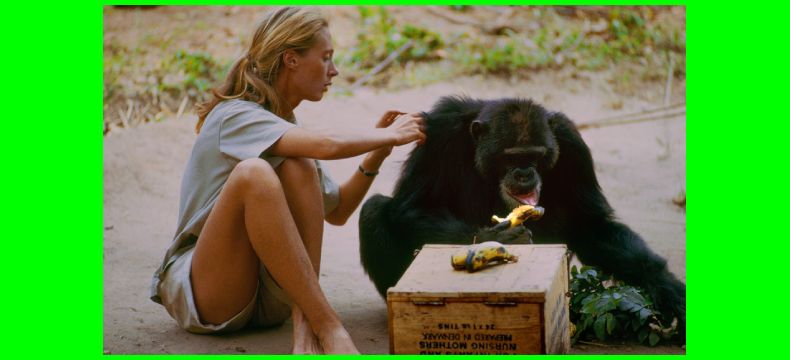
We are at the age of 15-minute grocery delivery.
We need/want everything as soon as possible. And brands comply to create businesses around making that happen and feed into our endless instant needs and wants.
Imagine something, and you have the means to acquire it provided you can afford it.
But, thankfully, there are still some things in life that you cannot get instantly, and most such things are about nature.
Consider the experiences of Jane Goodall, the English primatologist and anthropologist. If you read her biography (there are tons of books by her, and on her), you’d realize the amount of time and effort she has put in making contact with wild chimpanzees. When she starts her journey in Gombe (Tanzania), she hardly saw any chimpanzees, even though they were right in front of her, hiding in the trees. She could hear their hooting calls, but she could barely see one except for an occasional glimpse of an arm reaching out from the thick foliage and pulling a fruit out of sight.
This went on for over three months even as Jane fell ill, recovered, and continued the process of waiting to observe and make contact with the chimps. It took months before the chimps let Jane see them in their natural habitat.
Using that as a first step, she stayed in the background, did not hide (that could make the chimps suspicious), and acted uninterested. She continued watching them for months, stayed in rain along with them since they do not run for shelter during rain and simply accept it. She did that too, to give them confidence in her.
It took almost a year before she could make contact with the chimps – a grey-bearded chimp approached her! She named him David Greybeard. From that success, she went on to make groundbreaking observations about chimpanzees. Jane Goodall’s patience is beautiful to know about and observe!
The patience she exhibited, for almost a year, seems unimaginable in our current environment even though many scientists may be toiling away patiently and away from our eyes, creating incredible inventions or discoveries.
Or consider a much more relatable example – gardening! When you start getting interested in gardening, even if it is a lone potted plant in your balcony, you’d realize how slow the process is. The plant (or plants, seeds) don’t act at a speed that you are interested in. They do what they do, dictated by their natural speed. You cannot speed up seeds to sprout faster just because you want it.
The same thing is applicable to our bodies too. When you fall ill, even if it is the common cold variety, you need to go through a period of recovery – you could pound the illness with painkillers or heavy medicine to forget the impact of the illness briefly, but that’s a shortcut with a very span of effectiveness, if at all.
Nature teaches us patience every day, but we move away from that learning and create human-made systems and processes to speed up our many needs and wants, subverting the natural order and speed of things.
(Nature also gives us a false sense of comfort through its patience – consider climate change, for instance! The climate is changing, and we, as an arrogant species believing ourselves to be the rulers of the only planet we can live in, are most definitely causing it unimaginable harm. But nature doesn’t retaliate instantly – the phrase ‘glacial pace’ is so apt here. Nature’s retaliation is at a glacial pace, but when it does arrive, we won’t be able to withstand the impact.)
In that process, we expect the same speed with which we acquire things to also happen in our relationships. But relationships are part of nature and they require patience, and understanding, too.
We have come to understand and expect speed as a sign of maturity, progress, and intelligence. The invention of the wheel was truly marvelous, but that was the starting point of subverting natural speed. From that momentous point, everything we have done as a society involves getting things faster, getting things done faster. In the manic speed involved in our everyday living, we forget to observe our own bodies, and because of that, we need to seek the help of yoga breathing techniques like pranayama to observe our own breathing intricately, albeit for a few fleeting minutes, and reconnect with the natural speed that we started life with originally.
The more I engage with slower-moving things – plants, relationships (particularly with children), pets, and so on – the more I find myself enjoying that slower (in relative terms) speed and the patience required to engage in those activities. I’m nowhere close to being better in this department – I want my Amazon orders as soon as possible too, and look at my deliveries more than once a day to see where they are in the transit cycle 🙂
But largely, more than speed, I believe that patience is a sign of higher, more evolved intelligence. This patience is termed as ‘acceptance’ in Buddhism, but that’s just another framing that makes it easier to accept (pun unintended). Depending on your age, it may feel good to reconnect with your patient self by indulging in activities that do not require pace or speed. It’s easy to call it a ‘waste of time’, but things done with enjoyment are never time wasted.
Remember: “Patience is not the ability to wait but the ability to keep a good attitude while waiting.” —Joyce Meyer.
